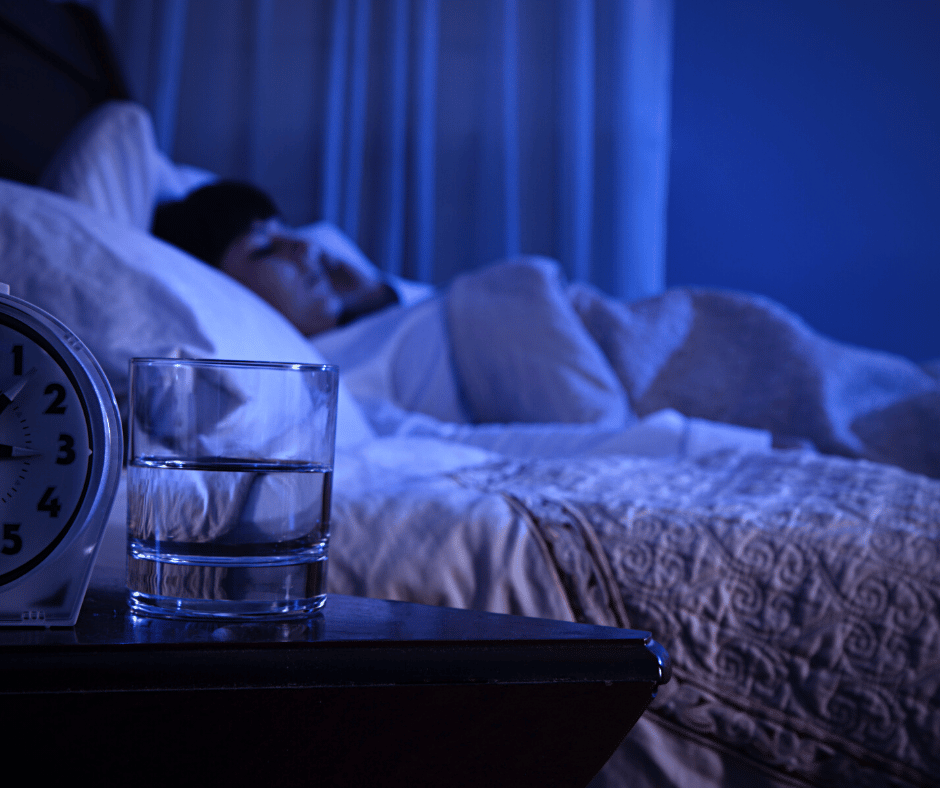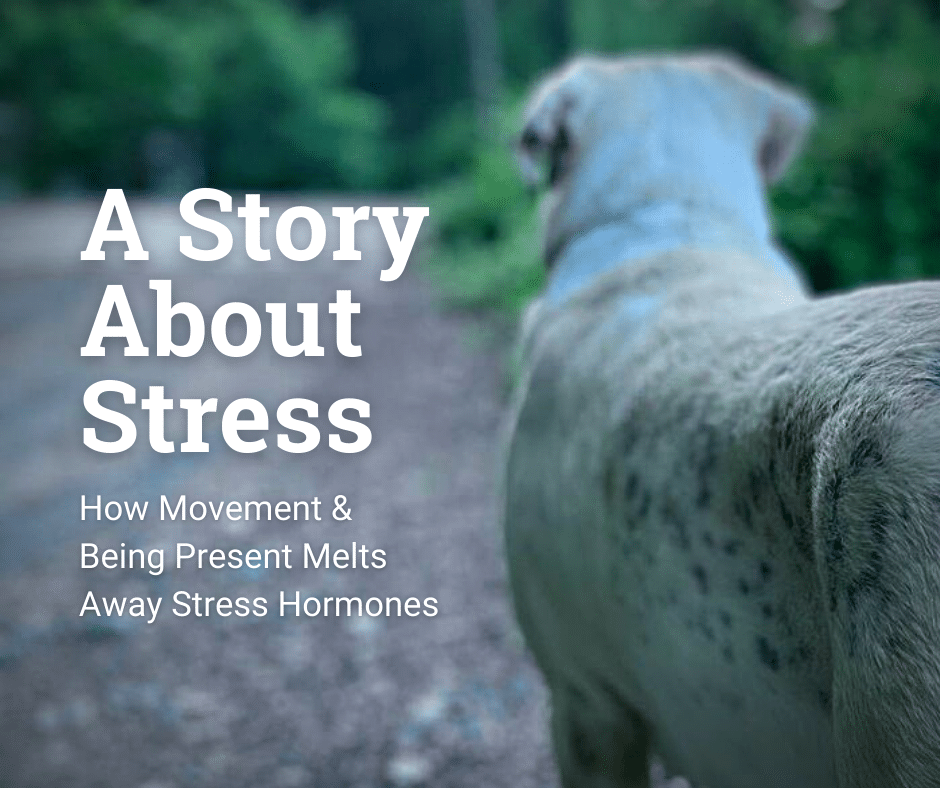Most people are familiar with the feeling of being exhausted. You know, that sensation where you can barely keep your eyes open, and every bone in your body aches for rest. Being tired isn’t just an inconvenience; it can seriously affect our health and well-being. According to the National Sleep Foundation¹, sleep deprivation can lead to weight gain, anxiety, depression, increased risk of chronic diseases, and even early death. So obviously, getting enough quality shut-eye is pretty darn important! (But easier said than done, right?) Luckily, we can do a few things to improve our sleep quality. This blog post will explore tips for better sleep and discuss the importance of good sleep for our overall health.
Sleep is a vital part of our lives. While sleeping, the body enters into a state of rest where it can repair and maintain itself while also restoring energy levels. It’s recommended that adults should get between 7-9 hours of sleep per night. When we don’t get a good night’s sleep, we feel the effects the next day with a lack of concentration, sluggishness, and fatigue. Not only do we suffer the consequences while feeling tired during the day, but there can also be long-term health effects associated with chronic sleep deprivation.
Sleep Deprivation Can Lead to Major Health Problems
Sleep deprivation, defined as consistently getting less than the recommended 7-9 hours of sleep per night, can lead to numerous health problems. Without enough restful sleep, your body becomes stressed, and fighting off cancer cells, viruses, and bacteria is more difficult. In addition, without enough sleep, our bodies may not regulate hormones that control hunger and metabolism properly, which can increase our chances of becoming obese or developing chronic illnesses such as diabetes or hypertension. Another key factor in understanding how lack of sleep can be so detrimental to our health is that it directly impacts how efficiently our brains process information, leading to slower reaction times and a greater risk of accidents.². Therefore if you want to stay on top of your health and protect yourself from cancer, chronic illness, and mental stress, make sure to get the recommended amount of sleep each night.
The Benefits of Sleep
When we rest, our body does important work that benefits nearly every cell and tissue. Therefore, having a good night’s sleep (or not) can drastically impact our mental and physical well-being.
Improved Mood and Concentration
Sleep is essential for maintaining good mental health and clarity of thought. Studies have shown that getting a good night’s sleep can help improve mood, concentration, and cognitive performance. When we get enough restful sleep, our brains can better process information and recall memories more quickly and accurately.
In addition, being well-rested helps us stay alert throughout the day so we can make decisions with greater accuracy and confidence. Furthermore, research has found that people who get adequate amounts of quality sleep experience fewer symptoms of depression than those who don’t get enough restful sleep.³ Therefore, it’s important to prioritize getting a good night’s sleep to enjoy improved mood and concentration levels during the day!
Better Cognitive Function
According to the brain plasticity theory, a major explanation for why humans sleep, sleep allows the brain to grow, reorganize, restructure, and establish new neural connections. The brain updates these connections during sleep, allowing individuals to learn new information and form memories. Quality sleep increases concentration and improves decision-making and problem-solving skills.⁴ A good night’s sleep increases productivity.
Sleep deprivation can negatively affect the ability to think clearly, make memories, learn well, and function during the day. After a week of insufficient sleep, the ability to think stalls quickly. Accuracy on tasks also decreases after a week of getting less than five hours of sleep each night. People who lack sleep perform poorly in activities like driving that require quick reactions and attention to multiple tasks.⁵
Sleep deprivation also impacts judgment and leads to riskier behavior. Sleep-deprived people often make poor decisions because they are focused on the desired outcome rather than the consequences.
Healthy Heart
Ensuring you get adequate, high-quality sleep is critical for your heart and cardiovascular system to remain healthy.
Our heart rate gradually decreases as we sleep, and our blood pressure levels drop. This allows the cardiovascular system to recuperate from daily stressors and rest. On the flip side, lack of sleep may have dangerous implications on long-term health as it puts chronic strain on the heart by keeping blood pressure elevated for an extended period of time, thus increasing one’s chance of encountering cardiac ailments.
Studies have shown that people who don’t get enough sleep or have poor quality of sleep are more likely to develop high blood pressure, obesity, diabetes, and other conditions which can increase the risk of stroke or heart attack.⁶
Additionally, getting good restful sleep helps maintain a healthy balance between triglycerides (fatty acids) and HDL cholesterol (the “good” type), all vital factors for keeping your heart strong.⁷ So, if you want to keep your heart beating strong for years to come – make sure you’re getting plenty of quality rest!
Regulated Blood Sugar
Getting quality sleep is essential for regulating blood sugar and insulin levels.⁸ Insulin is an important hormone secreted by the pancreas, which helps to regulate the amount of glucose in our bloodstream. When we get enough restful sleep, our body produces insulin more efficiently, which helps to keep our blood sugar levels stable. Studies have shown that lack of sleep can lead to an increased risk of diabetes and obesity due to impaired glucose tolerance and decreased sensitivity to insulin.⁹ Therefore, we must prioritize getting a good night’s sleep to maintain healthy blood sugar levels!
Maintaining Healthy Weight
In addition to exercise, stress management, and healthy eating choices, quality sleep is an essential component of maintaining a healthy weight.
Studies have shown that people who don’t get enough restful sleep are more likely to gain weight, while those who do get enough quality sleep tend to maintain a healthy body mass index (BMI). A lack of adequate rest can disrupt the hormones responsible for regulating hunger, increasing appetite, and cravings for unhealthy foods. The body naturally produces more of the appetite suppressor leptin during sleep while reducing the appetite stimulant ghrelin during sleep. It is thought that a lack of sleep can cause an increased feeling of hunger because it causes the production of ghrelin to increase and the production of leptin to decrease.10
Furthermore, when well-rested, our bodies can better metabolize fats properly, which helps us burn calories more efficiently. Recent research in the Annals of Internal Medicine finds that sleep alone is among the best diet tools identified. They studied two groups of people with different sleep schedules. In one group, 8.5 hours of sleep per night were recorded, while in the other, 5.5 hours were recorded (which the authors point out is the “norm” for people today). Both groups consumed around 1,450 calories a day. The individuals who slept more lost more fat after two weeks. During the 8.5-hour sleep period, over 50% of weight loss was fat compared to only one-quarter of weight loss during the 5.5-hour sleep period.11
Quality sleep also helps reduce stress levels which can lead to emotional eating or bingeing on unhealthy snacks. Therefore it’s important to prioritize getting a good night’s sleep if you want to stay at a healthy weight!
Restoring Immune Function
Getting quality sleep is essential for restoring immune function. Studies have shown that lack of sleep can impair the body’s ability to fight off infection and disease and slow recovery from illness. When we get enough restful sleep, our bodies produce more white blood cells, which help fight off infections, and our bodies are better able to regulate inflammation levels – all important factors in maintaining a healthy immune system.12
It is well known that sleep and the circadian system affect immune function. To exert this influence, the central nervous system communicates with the immune system bidirectionally through shared signals (neurotransmitters, hormones, and cytokines), and the autonomic nervous system innervates the immune system directly. There is a strong correlation between several immune functions and the regular 24-hour sleep–wake cycle, indicating a synergistic effect between sleep and the circadian system.13
Furthermore, adequate rest helps reduce stress hormones which can weaken the immune system over time. Therefore, we must prioritize getting a good night’s sleep to keep our immune systems functioning optimally!
Repairs DNA and Damaged Cells
The importance of a good night’s sleep cannot be overstated. Not only does it help us maintain our mental and physical health, but it also helps the body repair its DNA and damaged cells – an essential factor in reducing the risk of cancer.
Healthy adults who get enough high-quality sleep have a slower rate of cellular aging, according to a 2014 study. Cell age was measured by the length of telomeres, a key indicator of cell age. In older adults who slept well and enough, telomere length was longer, indicating younger cells.14
The effects of not getting enough high-quality sleep on cell and DNA function have also been studied. According to another 2014 study, lack of sleep leads to increased DNA damage, injury, and dysfunction of cells, including heightened cell death, proliferation, and cell replication errors in cells.15
It’s no wonder why sleep is so important for protecting cells and DNA. Cancer is a disease that comes in many forms, but it all involves abnormal, damaged cells that grow out of control. DNA plays an integral role in cancer since our genes determine how our cells behave, including how they grow, repair, and reproduce.
Reduces Stress Hormones
In addition to providing energy and focus, getting enough restful sleep can also help reduce stress hormones. Studies have shown that when we get enough sleep, our bodies produce less cortisol, a hormone associated with stress. Lack of sleep increases the production of cortisol, which, in turn, can lead to depression and anxiety. It may also lead to unhealthy habits like overeating and emotional eating due to an increased craving for sugary snacks and comfort foods. Sleeping well lowers our stress levels and reduces anxiety and depression.16
It has been shown that poor sleep quality and sleep deprivation influence stress-related parameters, including cortisol levels and inflammation. Cortisol levels can also be disrupted by fragmented sleep or long-term sleep deprivation, as well as going to sleep at times that aren’t consistent with natural sleep-wake rhythms.
Sleep deprivation can cause the body to respond as if it is in distress, releasing a higher amount of cortisol, a stress hormone. Cortisol causes your fight or flight reaction, raising your heart rate in anticipation of a fight. A high cortisol level, however, can result in weight gain and cardiovascular problems over time since it prevents the body from regulating its hormone levels overnight. Sleeping less than five hours a night has been associated with cortisol-related issues, such as high blood pressure.17
If you get enough rest, your cortisol levels will significantly drop, and your body’s systems will be restored to balance. If you want to avoid the rise in hormone levels altogether, and reduce existing feelings of anxiety and stress, try to get between seven and nine hours of sleep a night.
Tips for Getting a Good Night’s Sleep
Getting a good night’s sleep can be challenging, especially with the distracting clutter and the stress of daily life. However, there are some things you can do to improve your sleep quality. Following these tips will ensure you get all the restorative sleep your body needs to function properly!
Avoid Caffeine After 5 PM
Caffeine is a stimulant that can interfere with your body’s ability to relax and get ready for sleep, so it’s best to avoid consuming caffeine or other stimulants late in the day. Keep in mind caffeine is not only in coffee. Other sources of caffeine are chocolate and certain teas. Some herbal supplements like ashwagandha and maca can also act as stimulants.
Get Regular Sunlight
Getting enough sunlight is essential for regulating your sleep cycle and maintaining good health. Sunlight helps to set our body’s internal clock, or circadian rhythm, which is responsible for telling us when it’s time to wake up and go to bed. It also releases hormones like serotonin, which make us feel energized during the day, and melatonin at night, which helps us fall asleep. Additionally, exposure to natural light can help reduce stress levels by balancing cortisol production in the body. Therefore, ensuring you get enough natural sunlight throughout the day can improve your sleep quality and overall well-being.
Spend At Least 10-30 Minutes in Red Light Therapy
The good thing about red light is that it doesn’t stimulate you and helps you relax, but it’s also recommended that you do it earlier in the day to get the best result. Red light therapy helps reset your biological clock and promote restorative sleep cycles by impacting melatonin levels in the body. Because of its low color temperature, it soothes the body and helps you sleep better at night. Using red light at night or in the evenings can help you get into a better sleep cycle. This is because red light simulates wavelengths of morning and evening sunlight. View our favorite red light therapy tools.
Avoid Scrolling Social Media Before Bed
Using social media before bed activates dopamine production, making it harder to relax and fall asleep, so try avoiding scrolling Instagram or other social media platforms at least an hour before going to sleep.
Avoid Blue Light
The blue light emitted from screens like phones, tablets or TVs can prevent our brains from releasing melatonin and make it harder for us to fall asleep quickly. Try using blue-light-blocking glasses or turn off all these devices at least one hour before bedtime if possible. Our lights in the home can also cause blue light exposure. This is where blue-light-blocking glasses can help us not have to go lights-out or change out all our house bulbs.
Create a Relaxing Environment To Sleep In
Keeping your bedroom dark, cool and quiet will help create an environment that encourages relaxation and better sleep quality overall. A cluttered or messy room may increase stress or keep you from feeling relaxed. This can be especially true for parents whose rooms have been taken over by kids’ toys or those working from home who bring work into the room. If possible, try to eliminate or reduce items in the bedroom that will remind you of tomorrow’s to-do lists.
Establish a Regular Sleeping Schedule & Stick To It
Having consistent sleeping patterns is essential when it comes to getting good quality sleep so try setting up fixed times for going to bed each night and waking up each morning which should become routine after a few weeks! It may be helpful to set alarms on your phone to alert you and keep you accountable for when to start winding down.
Take Time For Self-Care Before Going To Bed
Taking some time before you go to bed to engage in self-care activities such as reading, praying, or massage can also help you reduce your stress level, which will, in turn, help you relax more easily once you enter your bed. Just make sure to start your relaxation routine early enough so that you aren’t going to bed too late.
Don’t Forget Your Magnesium
Magnesium bicarbonate is an effective supplement that can help improve sleep quality. It helps relax the body, reduce stress, and calm the mind, all of which are essential for a good night’s rest. Magnesium bicarbonate works by helping regulate hormones such as cortisol and melatonin, both of which play a role in regulating our sleeping patterns. Additionally, magnesium is known to reduce inflammation in the body and increase GABA levels in the brain – two factors that can lead to improved sleep quality.18 All these benefits make magnesium bicarbonate an ideal choice for those looking to get better restful nights!
Conclusion
A good night’s sleep is essential for our health and well-being, yet many of us don’t get enough. Sleep deprivation can lead to serious health problems. To avoid these negative consequences and reap the benefits of good sleep, follow the tips in this article to get the shut-eye you need. Do you have trouble sleeping? What are your favorite tips for falling asleep quickly and easily? Share them with us in the comments!
References
- Suni, Eric, and Alex Dimitriu. “Sleep Deprivation: Causes, Symptoms, & Treatment.” Sleep Foundation, 24 June 2021, www.sleepfoundation.org/sleep-deprivation.
- “UpToDate.” Uptodate.com, 2019, www.uptodate.com/contents/insufficient-sleep-definition-epidemiology-and-adverse-outcomes.
- Blackwelder, Amanda, et al. “Effect of Inadequate Sleep on Frequent Mental Distress.” Preventing Chronic Disease, vol. 18, no. 18, 17 June 2021, www.ncbi.nlm.nih.gov/pmc/articles/PMC8220958/, 10.5888/pcd18.200573.
- Puderbaugh, Matt, and Prabhu D. Emmady. “Neuroplasticity.” PubMed, StatPearls Publishing, 2020, www.ncbi.nlm.nih.gov/books/NBK557811/.
- “Normal Sleep, Sleep Physiology, and Sleep Deprivation: Normal Sleep in Adults, Infants, and the Elderly, Sleep Physiology, Circadian Rhythms That Influence Sleep.” Medscape.com, 21 Nov. 2019, emedicine.medscape.com/article/1188226-overview.
- CDC. “How Does Sleep Affect Your Heart Health? | Cdc.gov.” Centers for Disease Control and Prevention, 4 Jan. 2021, www.cdc.gov/bloodpressure/sleep.htm.
- Kaneita, Yoshitaka, et al. “Associations of Usual Sleep Duration with Serum Lipid and Lipoprotein Levels.” Sleep, vol. 31, no. 5, 1 May 2008, pp. 645–652, www.ncbi.nlm.nih.gov/pmc/articles/PMC2398756/.
- “Sleep Deprivation and Deficiency – How Sleep Affects Your Health | NHLBI, NIH.” Www.nhlbi.nih.gov, 15 June 2022, www.nhlbi.nih.gov/health/sleep-deprivation/health-effects.
- CDC. “The Insulin Resistance–Diabetes Connection.” Centers for Disease Control and Prevention, 12 Aug. 2019, www.cdc.gov/diabetes/basics/insulin-resistance.html.
- CDC. “Healthy Weight.” Centers for Disease Control and Prevention, 2019, www.cdc.gov/healthyweight/index.html.
- Nedeltcheva, Arlet V., et al. “Insufficient Sleep Undermines Dietary Efforts to Reduce Adiposity.” Annals of Internal Medicine, vol. 153, no. 7, 5 Oct. 2010, p. 435, annals.org/aim/article-abstract/746184/insufficient-sleep-undermines-dietary-efforts-reduce-adiposity, 10.7326/0003-4819-153-7-201010050-00006.
- Suni, Eric. “Sleep & Immunity: Can a Lack of Sleep Make You Sick?” Sleep Foundation, 19 Nov. 2020, www.sleepfoundation.org/physical-health/how-sleep-affects-immunity.
- Besedovsky, Luciana, et al. “Sleep and Immune Function.” Pflügers Archiv – European Journal of Physiology, vol. 463, no. 1, 10 Nov. 2011, pp. 121–137, www.ncbi.nlm.nih.gov/pmc/articles/PMC3256323/, 10.1007/s00424-011-1044-0.
- Cribbet, Matthew R., et al. “Cellular Aging and Restorative Processes: Subjective Sleep Quality and Duration Moderate the Association between Age and Telomere Length in a Sample of Middle-Aged and Older Adults.” Sleep, vol. 37, no. 1, 1 Jan. 2014, pp. 65–70, 10.5665/sleep.3308.
- Everson, Carol A., et al. “Cell Injury and Repair Resulting from Sleep Loss and Sleep Recovery in Laboratory Rats.” Sleep, vol. 37, no. 12, 1 Dec. 2014, pp. 1929–1940, 10.5665/sleep.4244.
- “Stress.” Medlineplus.gov, National Library of Medicine, 2018, medlineplus.gov/stress.html.
- Leproult, R., et al. “Sleep Loss Results in an Elevation of Cortisol Levels the next Evening.” Sleep, vol. 20, no. 10, 1 Oct. 1997, pp. 865–870, www.ncbi.nlm.nih.gov/pubmed/9415946.
- Djokic, Gorica, et al. “The Effects of Magnesium – Melatonin – Vit B Complex Supplementation in Treatment of Insomnia.” Open Access Macedonian Journal of Medical Sciences, vol. 7, no. 18, 30 Aug. 2019, pp. 3101–3105, www.ncbi.nlm.nih.gov/pmc/articles/PMC6910806/#:~:text=Magnesium%20supplementation%20improves%20sleep%20efficiency, 10.3889/oamjms.2019.771.






0 Comments